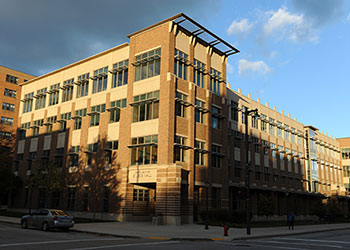Confidentiality or Non-Disclosure Agreement
For matters involving OEE, Marquette investigators who need a confidentiality or non-disclosure agreement (CDA/NDA) to receive or disclose confidential information to an external party should contact OEE. OEE will negotiate the CDA/NDA terms with the external party, update the investigator and coordinate signatures.
Material Transfer Agreement
The Office of Research and Sponsored Programs (ORSP) reviews and manages any material transfer agreement (MTA) when an external party request material from or wishes to send material to investigators at Marquette. Please contact the ORSP and please also inform OEE about transferring to external parties any materials that are the subject of an invention disclosure, patent application or issued patent.
Marquette University Intellectual Property Policy
Ownership of Marquette Intellectual Property
The intellectual property is owned by the university if the invention is first conceived or reduced to practice by faculty, staff or students:
- working on university research or other university projects,
- within the scope of university employment, or
- under university grants and contracts with governmental entities or other third parties; or
- with significant use of university resources
The intellectual property is owned by the inventor if the invention is first conceived or reduced to practice by faculty, staff or students:
- if the intellectual property is created outside the scope of university employment,
- without any significant use of university resources
Royalty Sharing
Under Marquette’s current Intellectual Property Policy, net proceeds are divided as follows.
Net proceeds and royalties
- Net proceeds from the licensing or sale of IP = gross proceeds less university's costs for IP protection/registration, production of prototypes, marketing, licensing, distribution, litigation, etc.
- Division of net proceeds:
- 50% to the Inventor/Author
- 25% to the University
- 15% to OEE Technology Transfer Program
- 10% to the Inventor or Author’s College, School, Program or Unit that supported IP creation, as determined on a case-by-case basis
Additional Policies
